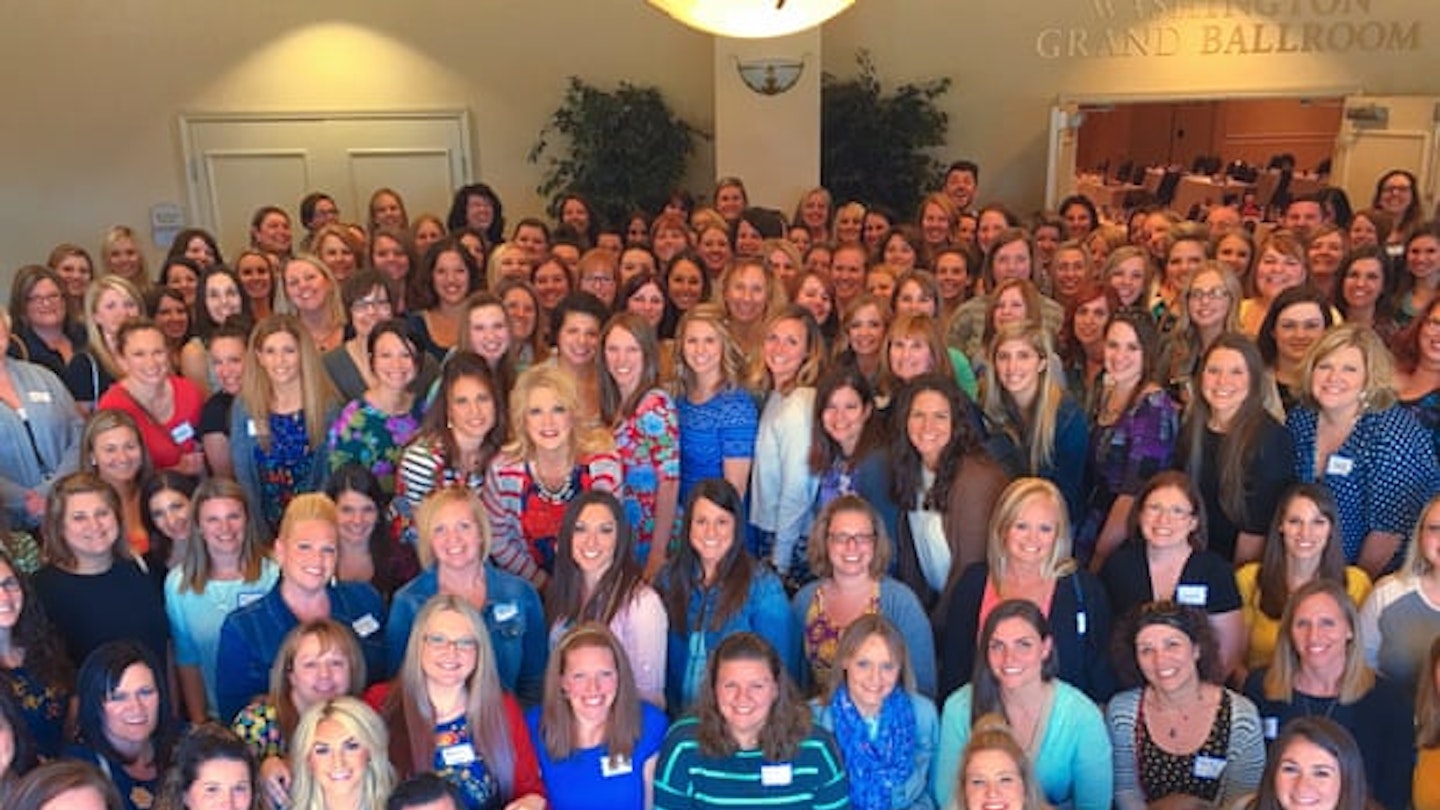Last week, LulaRich aired on Amazon Prime. A four-part docu-series about billion-dollar clothing empire LuLaRoe, the documentary explores the accusation that founders Mark and DeAnne Stidham misled thousands of women to become retailors of their multi-level marketing (MLM) scheme – or, as the lawsuit against them alleges, a pyramid scheme. And boy, does it get wild.
But first, a brief history: LuLaRoe is a fashion company best known for its bright-coloured, quirky leggings perfect for middle-American mothers busy lifestyle. When you visit their website though, you’ll notice the homepage is filled with promises beyond getting your hands on the latest legging trend. ‘Join LuLaRoe’, ‘Be Part Of Our Family’ and ‘Business Opportunity’ are all prominent taglines, emboldened by the LuLaRoe motto: ‘Creating Freedom Through Fashion’
So, what exactly are they selling? A retailor opportunity, it seems. That’s what LulaRich explores, how LuLaRoe went from selling leggings to convincing thousands of women to join their salesforce, invest in inventory and if you want a slice of the pie, convince new sellers to join on too.
You can see where this raised some eyebrows. Now just wait till you hear what the women who joined LuLaRoe as retailors have to say. Accusations levied against the company – which amassed over one billion in sales in 2016 - include sellers being pressured into weight-loss surgery, told to max out their credit cards and even sell their breastmilk in order to afford new inventory.
Yes, seriously.
A lot of people lost their marriages, their lives were in shambles.
‘A lot of people lost their marriages, their lives were in shambles, people were selling breast milk for start-up costs – are you kidding me?’ LaShae Kimbrough Benson, who started as an administrative assistant at the company’s headquarters in 2015, told The Guardian. ‘People were taking out loans, all kind of stuff. And [Mark and DeAnne] knew that.’
How did they get women on board with then? By appealing to their inner ‘girl boss’, it seems. According to LulaRich director by Jenner Furst, the company appealed to ‘middle America millennials who don’t have the same opportunities that their parents had, who are facing a lot of different struggles, who are susceptible on one hand to the patriarchal nuclear family structure but then also the pitch to be a girlboss and to be empowered and to be a feminist who is selling these leggings.’
In the docu-series, several former LulaRoe retailors – dubbed ‘Consultants’ – agreed with this notion, saying the company used shallow feminist language like ‘boss babe’ and promises they could work ‘part-time for full time pay’ to convince women they could run their own business from home while still having time for their kids.
‘They saw me, they’re like she’s bubbly, she’s energetic, she knows how to use social media, she’s an asset to moving this forward,’ Roberta Blevins, a former consultant at Lula Roe, told The Guardian – comparing the grooming process to love-bombing. ‘At that point, I was just another walking dollar sign.’
Blevins says was convinced to join LuLaRoe by a woman selling their leggings on Instagram who said she bought them wholesale from the company and sold them for double the price. Before long, Blevins had paid $9,000 (£6.5k) to become a consultant and receive a starter package of clothing to sell. While she initially made money, she said the company’s emphasis on recruiting new ‘consultants’ and the ‘bonus checks’ received for that put a strain on her. Soon, she was questioning everything, including the company events that seemed more like religious celebrations - where Mark would recite from the Book of Mormon – describing the environment as ‘very culty’.
While LuLaRoe has been sued multiple times since 2017, not just by consultants but consumers of their products too – and their chief clothing supplier Provident Industries, the company denies wrongdoing in all suits. Most recently, in January 2019, the Washington State Attorney General's Office filed a suit against LuLaRoe alleging that it is an illegal ‘pyramid scheme’, makes misleading income claims and encourages its consultants to focus more on recruitment than selling clothes to customers.
If you’re unfamiliar with MLMs, that’s how they skirt around the usual pyramid scheme legalities: MLMs are legal in the US as long as they sell a product rather than a membership, have a buyback policy, and prohibit buying new inventory until retailers have sold 70% and have at least 10 new customers.
In February 2021, LuLaRoe settled the Washington lawsuit for $4.74million (£3.5m) with the funds set to be shared between LuLaRoe distributors in the Washington state. They denied any wrongdoing, however the settlement now explicitly prohibits the company from operating a pyramid scheme and demands measures to improve transparency, including a requirement to publish accurate income disclosures.
Read More:
'I Started An OnlyFans In Lockdown And It's Not The Money Maker I Expected'
Why It's Ridiculous That Girls' Uniforms Cost 12% More Than Boys'
Terri White: It's Time To Cut The Crap About Older Motherhood
